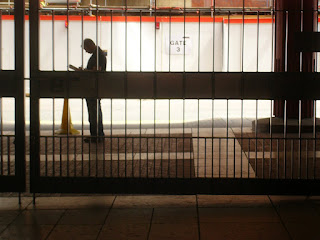 Either I mistake your shape and making quite,
Either I mistake your shape and making quite,Or else you are that shrewd and knavish sprite
Call’d Robin Goodfellow.
Fairy to Puck: A Midsummer Night’s Dream Act II Sc 1.
Bushy Ruff Cottages, Kearsney, South Kent. Saturday May 12th. D-Day minus two.
For over thirty five years I’ve walked out of the back gate of my father’s home at Bushy Ruff cottages in the village of Kearsney, which is about three miles from the White Cliffs of Dover. You can smell the sea, most days.
I turn left up a slope and walk across the elegant grounds of Kearsney Abbey, passing the lake where at weekends old men and young boys steer model boats away from the many moody swans. I’ll cross the small bridge and then visit the Co-op store in River close to the water mill; buy newspapers and milk, sometimes Argentine Merlots or a pork pie. Never once have I thought that I might be following in the footsteps of a famous literary life.
But – yesterday, my last day in the British Library for some time – I discovered a fact stranger than fiction. Suitably, perhaps, in a biography entitled Stranger than Fiction. The book was written by the feisty Newsnight Political Editor, Michael Crick, and considers the life of Jeffrey Archer, author and “character”.
Crick is the kind of journalist we’d all like to be. It was said that in the 2005 General Election the five most frightening words for politicians were: “Michael Crick is in reception.” His study of Archer is quite brilliant, telling a story of which Charles Dickens or Laurence Sterne would be proud. On the cover of the 2000 paperback there are two brief quotes: “Brilliant” says The Times. “I hate this book,” says Jeffrey Archer.
But back to Kearsney Abbey, the summer of 1962. A keen young PE teacher at Dover College, “very contemporary, very pukka, with a pronounced taste for Kipling, a voice like a razor-blade, and a Henry V haircut that was never out of character,” (wrote The Dovonian), appears in a “Dover Players” amateur production right here, in Kearsney Abbey. Where I’ve walked twenty minutes ago.
As Crick writes: “His [Archer’s] most notable role was as Puck in A Midsummer Night’s Dream, which the players performed in the grounds of nearby Kearsney Abbey. Every night the audience was startled as Puck, clad completely in green, suddenly leapt on to the stage from behind a tall hedge. In fact this leap wasn’t quite as agile and spectacular as it looked, since he’d actually taken off from a raised platform on the other side. But, in the opinion of the Dover Express, “Never could Dover Audiences have seen a more energetic puckish-Puck than Dover College master Jeffrey Archer who created havoc in the wood as he worked for his fairy king Oberon.”
I can, and will, make many literary allusions during this trip, but I was not expecting Jeffrey Archer to make an appearance. But thinking about it, and chance, Archer is not such a surprise – is rather welcome, actually. His lives and myths, their abrupt peaks and troughs, girdled from Oxford onwards by huge press interest that brought celebrity status for good and bad and Prison Diaries, tell us much about our times. Whatever one feels about Archer it is impossible to ignore the man. Simon Cowell of X-Factor fame was an old boy of Dover College too.
Jeffrey Archer is also geographically entwined with a very different pair of writers who I will consider tomorrow.
For a short time in 1961 Archer – known at Dover College as the “Grip Kid” as he was always telling his students to get one – lived at the digs of Alice Slaughter at Victoria Park, in Dover. She, Crick says, “was used to having lodgers with unusual activities. Before the war, she had owned a house on the seafront near the Eastern Dock, where Christopher Isherwood and W.H. Auden had briefly been her tenants. “they used to have the strangest people there,” says her daughter Joan Czarnowski, “and E.M Forster used to stay.”
More of them on Sunday.
Archer will, I suspect, be one for the historians as well as the journalists. His life is not as unusual as Tom Coryat’s, but just as enigmatic; and both are men of Somerset, for what it is worth. My fellow Contemporary Nomad, the Crime Writer Kevin Wignall, pointed out recently that Jeffrey was last year’s top British author in America – where hardback sales of False Impression – yes, really – were close to 275,000. Archer is still going strong. And there is that Judas book, as well.
Truly the ex-Dover Grip Kid has “put a girdle round the earth in forty minutes.”
Thus much of Kearsney Abbey.




